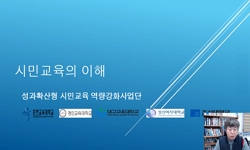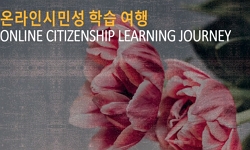We currently witness an increase in the currency of educational phrases involving ``competence``, which translates into requests for curriculum reform suitable for our next generation. As is often noted, such requests in fact emphasize non-cognitive c...
http://chineseinput.net/에서 pinyin(병음)방식으로 중국어를 변환할 수 있습니다.
변환된 중국어를 복사하여 사용하시면 됩니다.
- 中文 을 입력하시려면 zhongwen을 입력하시고 space를누르시면됩니다.
- 北京 을 입력하시려면 beijing을 입력하시고 space를 누르시면 됩니다.

역량기반 교육과정의 근거로서 인지 및 비인지 역량의 관계 = An analysis of relation between cognitive and non-cognitive competences as the foundation of competence-based curriculum
한글로보기https://www.riss.kr/link?id=A60239103
- 저자
- 발행기관
- 학술지명
- 권호사항
-
발행연도
2012
-
작성언어
-
- 주제어
-
KDC
300
-
등재정보
KCI등재
-
자료형태
학술저널
- 발행기관 URL
-
수록면
51-69(19쪽)
- 제공처
-
0
상세조회 -
0
다운로드
부가정보
다국어 초록 (Multilingual Abstract)
We currently witness an increase in the currency of educational phrases involving ``competence``, which translates into requests for curriculum reform suitable for our next generation. As is often noted, such requests in fact emphasize non-cognitive competences such as social skills, personal attitudes and ethical behaviors as the essential contents of our new curriculum. In spite of the currently high volume of scholarly works on competence-based curriculum reform that usually stresses learning and teaching of non-cognitive competences, however, it is not clear what the relationship we can draw between cognitive and non-cognitive competences. As the relation between the two can clarify the specific strategies of reforming the current curriculum, it is crucial for us to examine the types of such relations. Certain philosophical traditions have advocated a positive relation between the two, whereas certain cognitive psychological theories have it denied. And a recent comparative international survey shows that the case is more complicated than such an advocacy-denial dichotomy and that the relation could be diversely set up based upon cultural and social contexts. Thus, competence-based curriculum reform requires further analyses of the relations between cognitive and non-cognitive competences in each subject matter, which have been specifically formed in our cultural and social context.
동일학술지(권/호) 다른 논문
-
교수적 실천의 유형학 탐색: Basil Bernstein의 교육과정 사회학 관점
- 한국교육과정학회
- 성열관 ( Youl Kwan Sung )
- 2012
- KCI등재
-
- 한국교육과정학회
- 황규호 ( Gyu Ho Hwang )
- 2012
- KCI등재
-
집중이수제 정책의 등장과 퇴장: 정책 실패가 주는 시사점 탐색을 중심으로
- 한국교육과정학회
- 김재춘 ( Chae Chun Gim )
- 2012
- KCI등재
-
- 한국교육과정학회
- 박승배 ( Seung Bae Park )
- 2012
- KCI등재




 KISS
KISS



